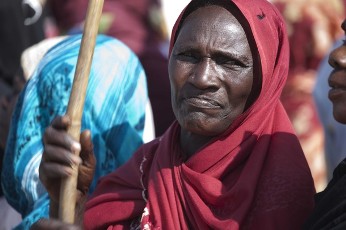Darfur parliamentary bloc rejects rebels’ demand for one region status
January 23, 2011 (KHARTOUM) – The bloc of Darfur MPs in the Sudanese national assembly has dismissed demands by Darfur rebel groups to merge the region’s current three states into one administrative territory.

The status of Darfur region remains the main point disagreement between the Sudanese government and the rebels groups since Abuja peace deal. The rebel groups consider the establishment of a regional authority as the sole guarantee to protect the rights on the land and a tool to ensure regional development.
Khartoum says this will lead to the fragmentation of the country as other regions would claim the same right particularly in eastern Sudan, blue Nil and Nuba Mountains. The ruling NCP further says it does not want to repeat the same error of the CPA with southern Sudan former rebels.
In a compromise proposed to the two negotiating teams from the government and LJM rebels the mediators however suggested to establish a regional body headed by a vice president who represents Darfur at the presidency.
Hasabo said 90% of Darfur’s population is against the united region demand. He also said that Darfur rebel groups had no right to demand one region or constitutional positions in the Khartoum government because they do not represent the people of Darfur.
Darfur stood as an independent Sultanate until it joined Sudan in 1916. The region retained a united territory until 1994 when the current government of president Al-Bashir divided the region into three states, northern, western and southern.
Darfur region has been steeped in conflict since 2003 when rebels belonging mostly to African ethnicities took up arms against the Sudanese government, accusing it of marginalizing the region in terms of development and power-sharing.
At least 300,000 died and more than 2 million lost their homes as a result of the counterinsurgency launched by Khartoum and its allied Arab militias in the region, according to UN estimates.
(ST)
